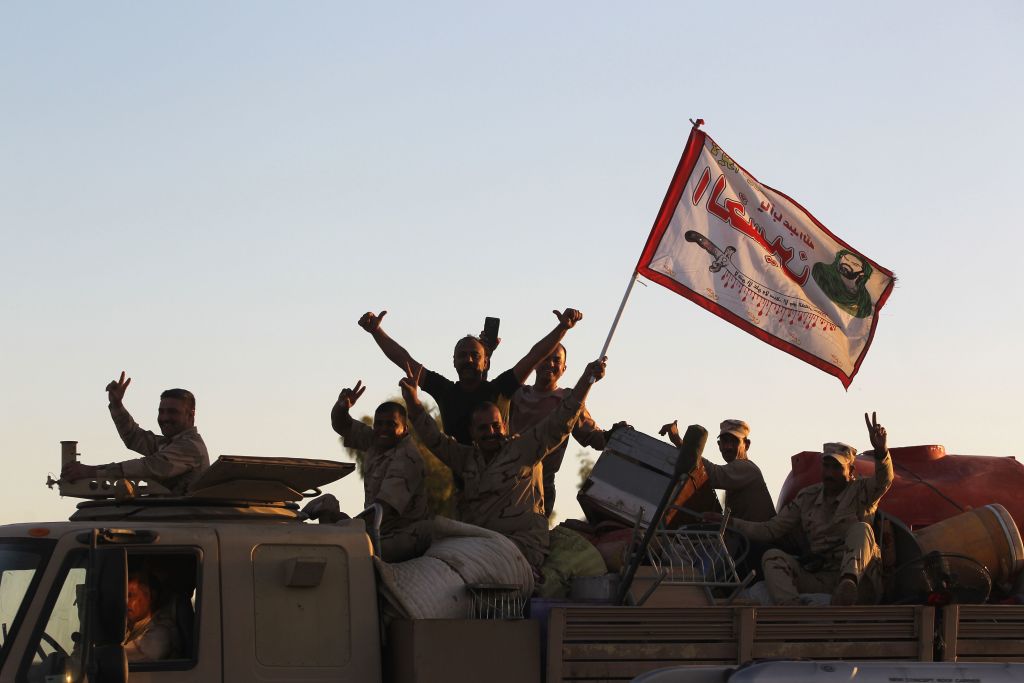The enduring image of the fall of Kirkuk is the Humvee. The advancing Iraqi forces rolled into the Kurdish-held city in them and the outflanked Peshmerga clambered aboard them to flee. The US-manufactured military truck is the vehicle of choice for America’s friends in conflict with America’s other friends. Humvees retail for £170,000 but the symbolism is free.
Washington’s shapeless, Janus-faced policy in the Middle East is easy fodder for cynics and reactionaries. These Yankee Doodle imperialists bluster into centuries-old tribal disputes thinking they can impose their clean-cut version of democracy on the Arab world and rebuild Rhode Island on the Red Sea. Look where it ends — in the tasty irony of US-trained Iraqi troops turning on US-armed Kurdish defence forces in an oil-rich land America was supposed to have liberated over a decade ago.
Even if we scorn this sneer-passing-as-critique, advocates of US global leadership and an interventionist foreign policy cannot look away from events in Kurdistan. Baghdad has retaken control of Kirkuk, a city held by the Peshmerga since Iraqi forces fled the Islamic State in 2014. The Kurds feel a keen attachment to Kirkuk and the city is sometimes referred to as the Kurdish Jerusalem. Iraq’s actions come after the Kurds held a referendum on independence. Ninety-three per cent, on a 73 per cent turnout, voted ‘Yes’ to their own sovereign state. The Kurds are now paying the price for expressing their will to govern themselves.
The US response has been weak as small beer. Donald Trump says:
‘We’re not taking sides, but we don’t like the fact that they’re clashing. We’ve had, for many years, a very good relationship with the Kurds. We’ve also been on the side of Iraq but we’re not taking sides in that battle.’
At least he’s taken the time to equivocate; wider Western leadership is largely silent on the situation. The activist class is quiet too. If you’re in the market for democracy tourism, Erbil doesn’t boast the cheap flights and tapas bars of Barcelona.
The Kurdish cause is not straightforward but such things seldom are. As Yaroslav Trofimov points out, regional president Masoud Barzani isn’t a central casting democrat and his gamble on the independence referendum has handed Baghdad a pretext to roll back Kurdish autonomy. The swift routing of the Peshmerga also raises serious questions about the ability of an independent Kurdistan to defend itself, and whether it could be captured by an Isis-like terror group.
But the Kurdish people have voted overwhelmingly to be independent and Iraq’s refusal to recognise that legitimate desire, and now to subdue it by military means, is no time for the West to turn suddenly reticent on the bounties of self-determination. The US should make clear to the Iraqis that Kurdish independence cannot be put down by force, not the directive of an imperial power or a patrician benefactor but the candour of one democracy to another. We might call this the Humvee imperative: no ally of the United States may be allowed to oppress or frustrate the democratic will of another.
A sound ideal but as our sneering friends would point out the Middle East is where ideals go to get bogged down. Unpalatable compromises have to be made and it’s a neocon fantasy to pretend otherwise. True enough. No sensible analysis of world affairs – or anything else for that matter – should spurn pragmatism but proponents of universal rights and norms must reckon with the broadness of their principles and the nuance of the world they are applied to.
Isolationists may take Kirkuk as confirmation of their foresight but it is no such thing. If you nod sagely and agree that nothing can be done often enough, eventually you’ll be proved right one of these times. Nonetheless, Kirkuk is another challenge to interventionism at a time of acute threat to the global liberal order. There may be no easy answers but it will have to be answered all the same.







Comments